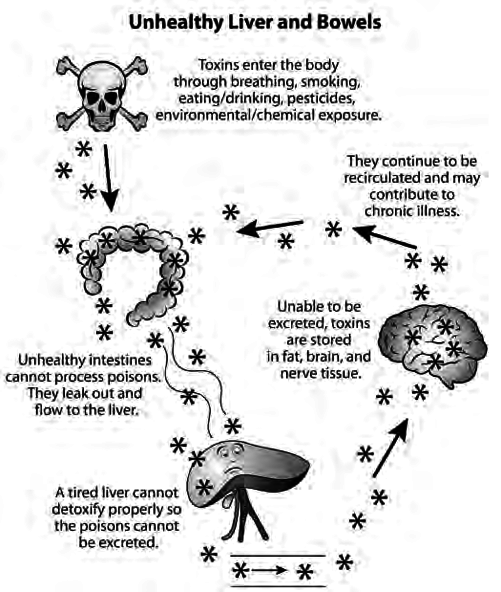100 Perks of Having Cancer: Plus 100 Health Tips for Surviving It (18 page)
Read 100 Perks of Having Cancer: Plus 100 Health Tips for Surviving It Online
Authors: Florence Strang
Tags: #Health; Fitness & Dieting, #Diseases & Physical Ailments, #Internal Medicine, #Oncology, #Cancer, #Medicine & Health Sciences, #Clinical, #Medical Books, #Alternative Medicine, #Medicine

until onions are limp and transparent (about 10 minutes). Add broth, carrots,
and ginger. Cover and bring to a boil. Reduce heat and simmer until carrots
are tender when pierced with a fork (about 13 to 15 minutes).
Remove from heat, let sit for 10 minutes, and then transfer to a blender. Be
careful! Don’t fill the blender more than halfway. It may take several batches
to do it this way, but when you are blending hot foods, there is a real danger
Perk #13: The Use of Medicinal Marijuana
65
of heat explosion (and with that comes a huge mess). Leave the hole in the
lid to the blender open, and loosely hold a dishtowel over the opening to
allow the steam to escape. Pulse the blender a few times before letting it run
on “puree.” Puree all contents until very smooth, and return to the pot. (You
can use an immersion or hand blender, if you wish; just blend very well until
smooth. There should be no visible pieces.)
Add your choice of plant-based milk and stir over high heat until almost boil-
ing. Add sea salt and pepper, to taste. Ladle into bowls and garnish with pars-
ley (if so desired).
This soup also freezes well. I find this soup tastes even better to me when it’s
not very hot, just warm. Medicine never tasted so good!
NUTRITION PER 1 CUP SERVING:
Using whole coconut milk:
Calories: 150; Protein: 1 gram; Carbs:
6 grams; Fat: 9.5 grams; Sodium: 705 milligrams
Using almond or low-fat coconut milk:
Calories: approx. 120; Protein:
1 gram; Carbs: 6 grams; Fat: 4 grams; Sodium: 705 milligrams
1 serving, either way, also has more than 300% of your RDA for vita-
min A, a powerful antioxidant and cancer fighter.
Note: Reduce your sodium to almost zero by making your own veg-
etable broth without salt, or cut the sodium in half by using half broth
and half water in the recipe.



Perk #14
I Didn’t Have to Worry About My Guests
Finding a Hair in the Food I Prepared
W
hen I first learned that I would be “on
chemo,” I wasn’t exactly sure what “on
chemo” meant. I knew that I would be sick, and
I would lose my hair, but as to how this chemo
would be administered was a mystery to me.
Would I have to get it every day? Would I be sick
for the entire four months?
Although it was not pleasant by any stretch
of the imagination, it was not quite as bad as I
had envisioned. While treatments differ depend-
ing on the type of cancer, I received a total of six
rounds of chemo. Each IV (intravenous) treat-
ment lasted about four hours, and treatments were spaced three weeks apart.
Basically, for a week to ten days following a treatment, I was knocked on
my arse—well, more accurately, my back. Then I’d feel myself start to come
around and, thankfully, for the last week, I usually felt well enough to live
a normal-ish lifestyle. I took advantage of my “good week” to do things with
my kids, spend time with my boyfriend Shawn, and try to repay my support
team in some small way for all the fabulous stuff they did for me!
During one of my good days, as I was preparing a meal for a few of my
friends, I instinctively reached for my apron and hair net. Then I laughed.
Getting a hair in the food I was preparing was one less thing I had to worry
about. And if someone happened to find one, I could innocently say, “Hey,
it’s not mine!”
This may be a small perk, but it was enough to make me laugh. It is
good to appreciate the humor in situations such as this.
I 66 J

Perk #14: I Didn’t Have to Worry About My Guests Finding a Hair in the Food I Prepared
67
HEALTH TIP #14 Appreciate Your Liver
A
s I write this, I am “detoxing” right now. (Are you getting a
visual?) So are you. Part of the process of your body’s metabolism
is the excretion of toxins. (Just look in the toilet, and you’ll see some.) But
there are also toxins outside your body like pollution, radioactive particles,
UV rays, pesticides in food, contaminates in water, and chemical exposure
from personal-care products that bombard your system every day. All toxins
are harmful to you, and your efficient body is constantly trying to expel
these toxins to maintain health and prevent illness. And it all goes on, com-
pletely unnoticed, while you go about your daily routines like going to work
or picking up the kids from school.
If you are overexposed to toxins and your body can’t keep up with clear-
ance, or if you have unhealthy intestines or a tired liver, your body will be
unable to clear these poisons from your system. That can open you up to a
breakdown of proper functioning called “illness” or “disease.”
“Detoxing” is a hot topic right now, and there are many people on the
Internet and on TV who would love you to believe that, to rid your body
of toxins, you need to buy their product so you can detox quickly and have
instant health. They promise you that you will feel great, lose 20 pounds,
and have more energy than a five-year-old at Disneyworld. And you’ll have
it in three days! News flash: You can’t change your entire health in three
days. But you
can
make the decision to change and start taking the first steps
toward that change in three days.
Proper detox can only happen if you have two body parts in perfect
working order: your intestines and your liver. Without healthy pipes (bow-
els) and a healthy filter (liver), your body is unable to process contaminates
that attack us around the clock. The health of these organs is even more
important when going through chemo as it is up to your liver to metabolize
those huge doses of chemotherapy drugs. Having an unhealthy liver and
colon can lead to toxins collecting in your brain and fat cells, and circulating
through your entire body causing chronic illness and disease.
An
unhealthy person
allows toxins to enter his or her body through:
●
smoking
●
processed, high-sugar, high-chemical foods


68
100 Perks of Having Cancer
●
chemicals in their environment, like BPA from plastics or chlorine in their
water
●
pesticides in their foods
●
pharmaceuticals
●
chemicals in their personal-care products
A
healthy person
is someone who:
●
eats clean, whole, nonprocessed foods, with no chemicals
●
limits pesticide exposure in foods
●
exercises regularly
●
limits unnecessary pharmaceutical use

